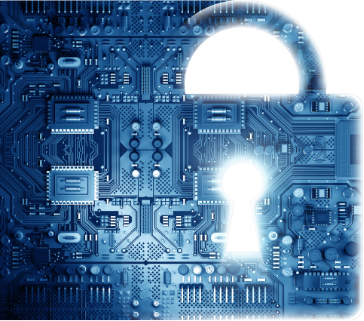Cyber Security Offerings
Assessment/Consulting Services
Fluidech Cyber Security service delivers an independent, dedicated, and consistent external cyber security evaluation program, together with one-on-one advisory services by certified security engineers. It offers an unbiased assessment of your current defenses, identifies potential gaps in your current cyber security posture, and provides recommendations for improvement.

Technical Assessments
IT Security Assessment
Vulnerability Assessment
Penetration Testing
Internal Audits & GRC Assessment
Fraud Detection & Investigation
Cyber Forensics, Data Forensics
Functional Assessments
For compliances: ISO, GDPR, HIPAA, FISMA, OWASP, PCI DSS to name a few
Consulting/Advisory Solutions
Compliance assessment
Risk assessment
Maturity assessment
Cyber Security strategy: to secure data, applications, database, infrastructure
Transformation/Integration Services
Cyber Security solutions are getting increasingly complex. New attack vectors are added into the mix, which can easily turn an average security solution into a susceptible one. Security solutions should be designed with flexibility in mind to avoid potential problems arising out of network devices not being able to support each other’s functionality.

Managed Security Services
Cyber Security is a critical business process to protect your organization from attacks and data breaches. In fact, it’s more important than ever due to the rise of cloud computing services and mobile platforms that have put us all at risk of being hacked. There are many different ways to approach cyber security. One of the most popular approaches is managed services, where a third party provides support for your technology, including consulting and monitoring. This approach encourages best practices through a proactive system rather than a reactive one.

Monitor, Detect, Response: services
SOC Setup
Managed SOC as a Service
Fraud & Risk Management
Ongoing vulnerability Management
Threat Management
InfraSec, AppSec, WebSec, SecaaS
Device Management as a Service for DLP, data protection
Security Technology Management
Audits & GRC
Patch {Configuration} Management
BCP / DR Management
Elevating Business Success Through Smart Innovation and Trusted Expertise
We help organizations elevate their business securely by integrating smart, forward-thinking cybersecurity solutions. Our trusted expertise ensures resilience against evolving threats while enabling innovation and growth.
Why Choose Us
Let us change the way you think about technology.
FAQs
Frequently Ask Questions.
A modern SOC integrates SIEM platforms, threat intelligence, security orchestration and automation (SOAR), endpoint detection and response (EDR), and skilled analysts to provide continuous threat monitoring, detection, and response. These components work in synergy to reduce dwell time, improve incident response, and enable proactive threat management aligned with business risk.
SOC maturity is often assessed using models like SOC-CMM. Advancing maturity involves improvements in processes, technology integration, analyst skills, automation, threat intelligence, and proactive threat hunting.
NCIIPC is responsible for protecting India’s Critical Information Infrastructure (CII) by identifying threats, providing guidelines, conducting audits, and ensuring sector-specific cybersecurity readiness.
CII refers to computer resources, systems, or networks whose incapacity or destruction would have a debilitating impact on national security, the economy, public health, or safety. NCIIPC classifies and protects these assets through sectoral coordination and regulatory support.
BTC is a set of mandatory and advisory security requirements defined by NCIIPC for service providers and cybersecurity vendors. It ensures that only technically competent and security-compliant organizations are engaged in CII-related activities.
CSCRF provides a structured set of cybersecurity controls to help organizations manage and reduce risk, aligned with national and global standards like NIST, ISO 27001, and sectoral regulators.
Misconfigured storage buckets, excessive access permissions, lack of encryption, poor identity and access management (IAM), and lack of logging and monitoring are common issues.
By using unified security policies, implementing zero trust models, encrypting data in transit and at rest, continuous monitoring, and using CASB, SIEM, and CSPM solutions.
Secure code practices, automated security scans (SAST/DAST), container security, secrets management, and integrating security gates within CI/CD workflows are crucial.
By integrating security early in the development lifecycle, teams can detect and remediate vulnerabilities sooner, reducing cost, risk, and time to deployment.


